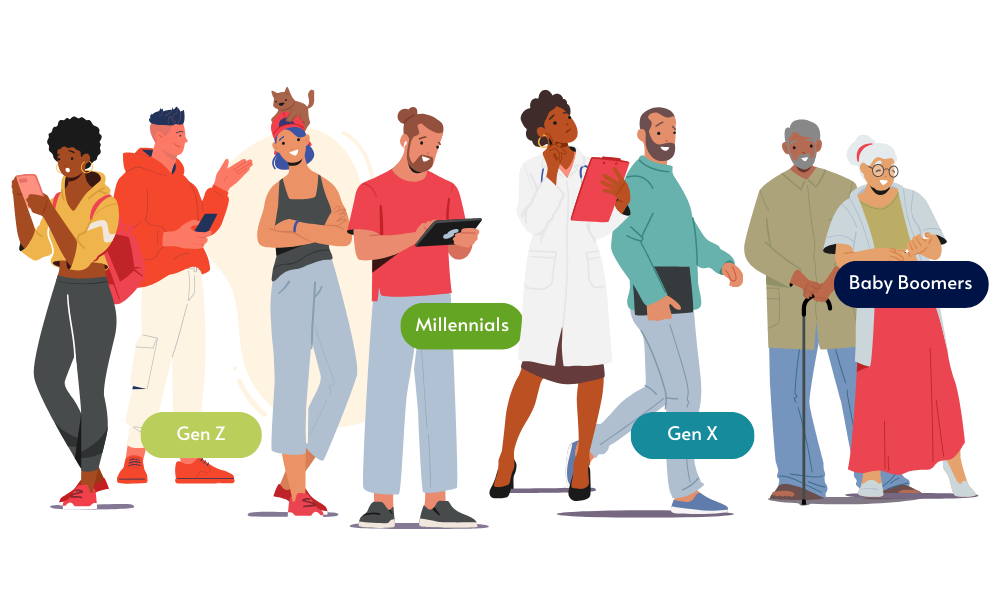Have you heard thought leaders discussing the ‘Fourth Industrial Revolution’?
Just the term ‘industrial revolution’ brings to mind an image of smoke stacks and workhouses, so it can be hard to imagine that we’re on the dawn of another. But actually, it’s the sign that we’re on the cusp of accelerated innovation and human advancement.
Maybe we should start by reviewing the significant industrial milestones of the past:
| The First Industrial Revolution Began in approximately 1760 and involved a transition to new manufacturing processes across Europe. We moved from hand production to machines, and brought a whole new wave of human conveniences into play, such as textile production, train travel, iron production, sanitation systems and much more. The workforce moved from primarily working on the land to working in factories and workshops. |
| The Second Industrial Revolution This was also known as the ‘Technological Revolution’ and is generally dated between 1870 and 1914 (the beginning of WW1). Advancements in manufacturing and technology led to the telegraph, an expansion of railroad networks, gas and water supplies to homes and the introduction of electrical power and telephones. This led to a convenience of communication and the spreading of ideas, causing a mass boost to the economy and innovative business leaders. |
| The Third Industrial Revolution Widely coined as the Digital Revolution, this time period marks the transition from mechanical and analogue technology to digital electronics, generally attributed to the latter half of the 20th century. It is marked by the invention of the internet, the adoption of home computers, the dawn of social media and smartphones. This period has seen many industries fuel a rise in jobs with digital skills. |
| The Fourth Industrial Revolution The fourth industrial revolution will be characterized by the rise of automation and the Internet of Things. Many industries will become automated or highly self-managing, leading to a rapid need for employees to retrain or move into new emerging industries. |

How Will the Fourth Industrial Revolution Affect Industries?
With mass automation, some industries may be able to operate on a significantly reduced workforce, meaning employees will need to retrain. Most notably, experts believe there will be significant changes to:
Healthcare
When it comes to healthcare, accuracy is key and it is often human error that we are trying to overcome. It’s all too easy to overlook a symptom or give someone the wrong medication. Automating these systems with robotics will help the industry to become more efficient, but it will mean roles that were traditionally highly analogue will now require digital skills.
Restaurants and Food Service
You’ve probably already experienced a restaurant where you can order food to your table from your smartphone, it reduces the risk of unhappy customers who have experienced a miscommunication of their order and speeds up efficiency. However, this doesn’t mean waiting staff will become defunct. On the contrary, they’ll have more time to focus on quality of service, cleaning and other management tasks.
Retail
COVID saw mass closures of high-street retail stores, proving how tenuous their economic grasp was already becoming. With the rise of online shopping, many believe the high street is well overdue for an intense overhaul. In fact, the government has already started campaigning to encourage retail staff to retrain and gain digital skills.
Manufacturing
Production can now by highly automated, leading to a need for staff with greater confidence with digital systems.
Finance
With HMRC already leading the charge towards ‘Making Tax Digital’, finance and administration staff will need to become ever more confident with computer skills and finance systems.
So How Should Business Owners Be Preparing For The Fourth Industrial Revolution?
The key takeaway here is that business owners will need to stay on the ball, keep up with the times and ensure they’re not left behind. The best way to do this, is by implementing a culture of continuous professional development within their staff.
This means regular training to ensure staff are confident to adapt to changes within their industry.
Small business owners would also benefit tremendously from diversifying the skills of their staff. For example, if your retail workers are becoming less needed and relevant, why not consider giving them digital skills or a warehouse qualification so that they can manage the backend of your online retail operation?
If you’re interested in exploring a strategy for continuous professional development or upskilling, why not speak to us about apprenticeships? Many businesses don’t realize they can enroll their current team members on an apprenticeship to give them hands-on skills and nationally recognised qualifications.






